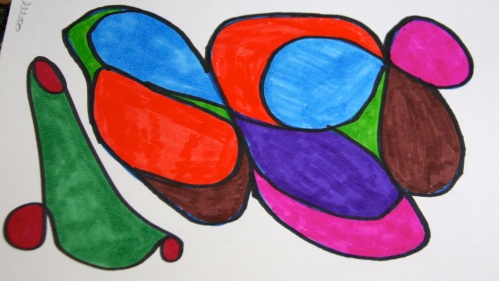
Writing Memories 1
Saint John Free Public Library
10 March 2019
Subtitle: Thoughts and exercises on the role of memory as we grow and age.
Remember: we are not just writers, we are re-writers.
About Words:
Words strain,
crack and sometimes break, under the burden,
under the tension, slip, slide, perish,
decay with imprecision, will not stay in place,
will not stay still. (T. S. Eliot, Burnt Norton)
About Effort:
That was a way of putting it—not very satisfactory:
a periphrastic study in a worn-out poetical fashion,
leaving one still with the intolerable wrestle
with words and meanings. (T. S. Eliot, East Coker)
About Revision:
Every attempt
is a wholly new start, and a different kind of failure
because one has only learnt to get the better of words
for the thing one no longer has to say, or the way in which
one is no longer disposed to say it. (T. S. Eliot, East Coker)
Introduction:
As promised, I will present here, over the next week, my thoughts and comments on the writing workshop that took place in Saint John on Sunday, 10 March 2019. The workshop began with the above words from T. S. Eliot. They can be used for contemplation about the difficult art and craft of writing. They can also be used as prompts from which writers can develop their own creative and poetic philosophy. There is more indeed, much more, than the simple splashing of ink upon the page. Yet we all begin with that first splash of ink, that first letter drawn with finger from the computer keyboard, or thumbed on the I-Pad.
Where do writers go next? That is the question. In this workshop, with its series of thematically linked writing models and prompts, I will try and answer some of those questions. More important, perhaps, all participants will have time to think, time to write, and time to read what they have written to a sympathetic audience.
The workshop’s structure is simple: five modules of 30 minutes each. After the third module, there will be a ten minute break. The last two modules will be followed by a question and answer session that can be prolonged for as long as participants wish.
Alas, I am not familiar with the writers in this group and therefore have not prepared individual exercises for each person’s needs. Forgive me for this lapse. What I have done is to draw up some generic hints and some typical models from which participants are free to select what suits them best. But first some notes on the writing you will be asked to do.
Suggestions for the writing exercise included in each module:
Write a prose memoir, just reminiscing.
Use 1st, 2nd, or 3rd person narrative.
Choose 6-12 words from the reading and expand on them using associative fields.
Write from an image or a metaphor.
Journal style: automatic writing, but try to select the gems.
Letter style: write to a friend.
Writing Levels:
Since I am unfamiliar with you as individual writers, here are four generic writing levels. Choose one and write from within that level. By all means work your way through the levels, if you wish to do so, one level per module.
Beginning Writers: Just write, using the prompts to help you get your own words and experiences and memories on the page. Don’t be afraid to ask me, or more experienced writers in the room, for help.
Intermediate Writers 1: Try and concentrate on writing about one or two senses within each exercise.
Intermediate Writers 2: Try and combine two or three senses within each exercise.
Advanced Writers: Use the prompts as you will and concentrate on imagery, metaphors, letting the language doing the work, and combining or mixing the senses. Also, please share your experiences (positive and negative) with other writers in each mini-group.
Reading and discussion:
NB Change tables and seek new people in mini-groups after each module. Ideal size of mini-groups is 3-4 people.
We need to learn how to share, and how to accept very diverse opinions, some of which may be good and some of which may be bad.
Don’t just talk to old friends: discover and make new ones.
Listen to the comments and accept them or reject them after you have thought about them. Don’t argue. Don’t explain. Don’t defend your writing. Just listen and see how others read and see and understand your work.
As you read and listen, learn from the other writers, how they write, how they read, how they express themselves.
We are all in search of our own very personal and elusive voice: you won’t find your voice unless you use it. Remember: use it or lose it.
Invitation and Reminder:
By all means comment on this workshop and its modules. Module 1, with some polishing and though, will appear tomorrow.

















